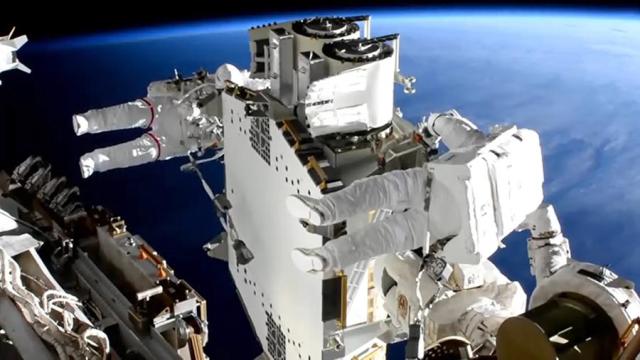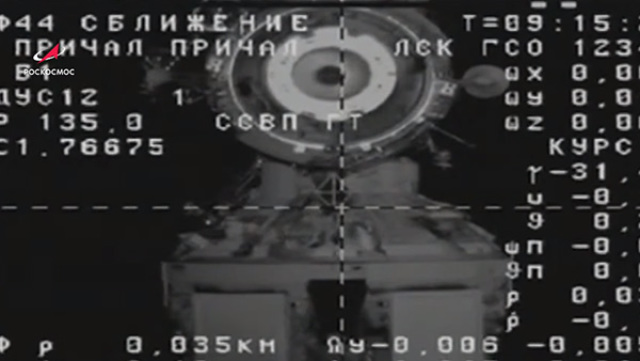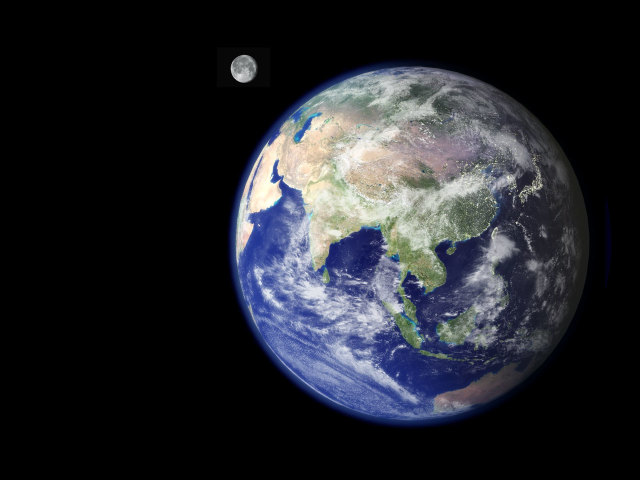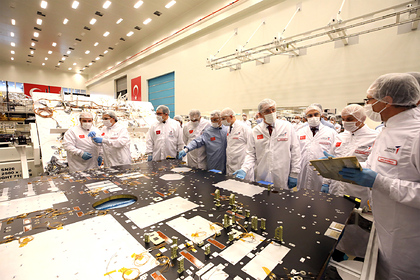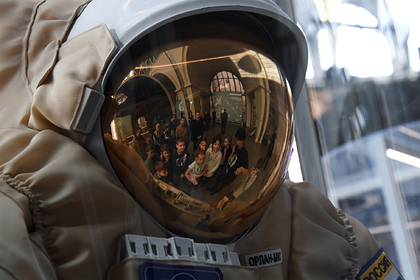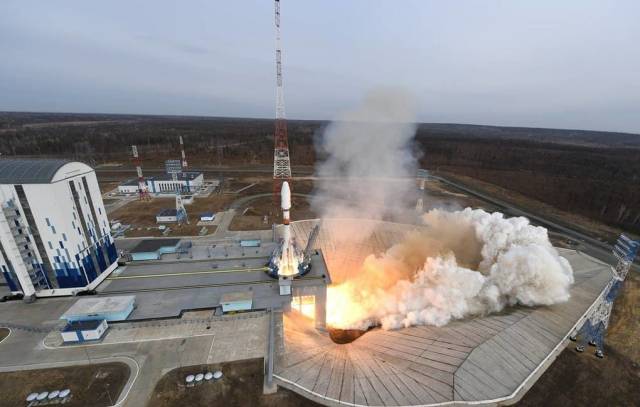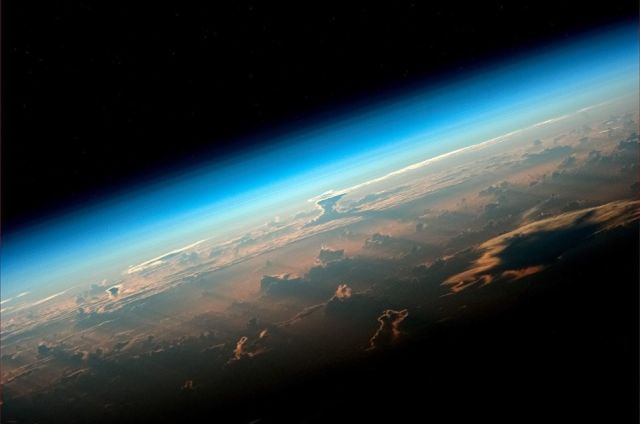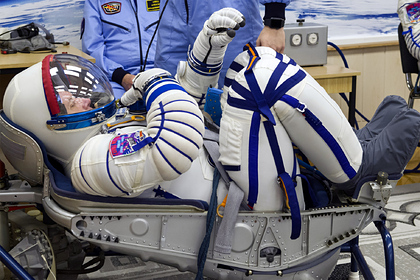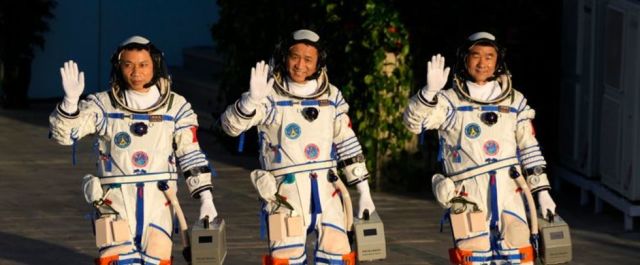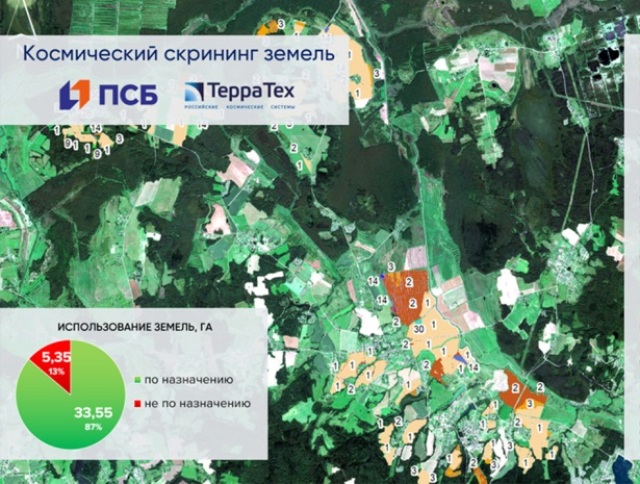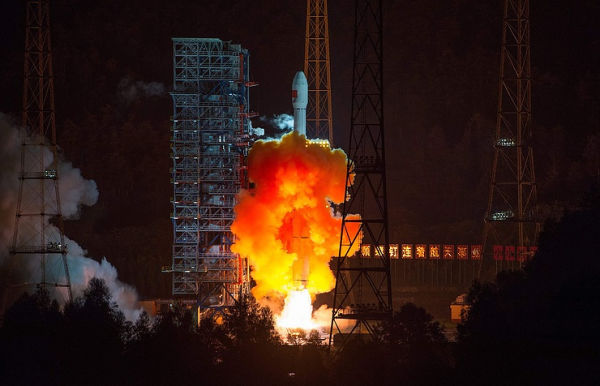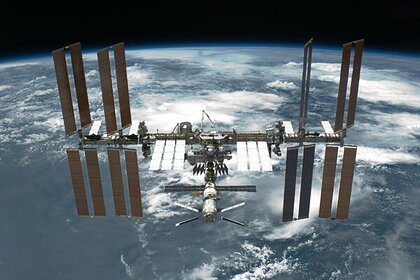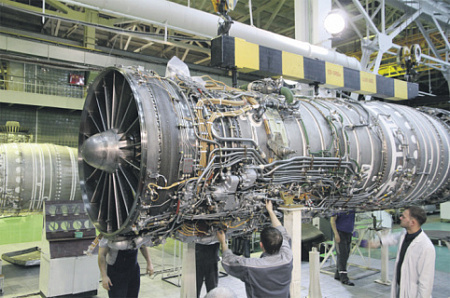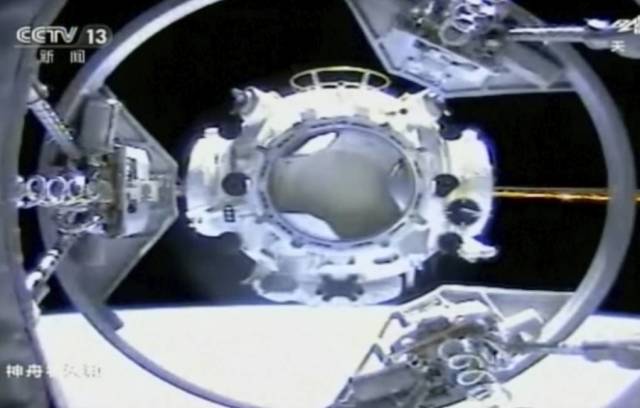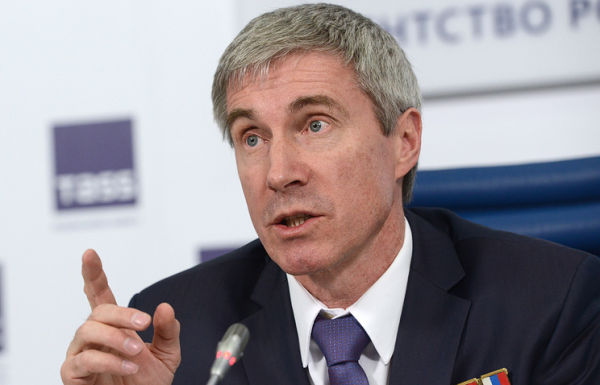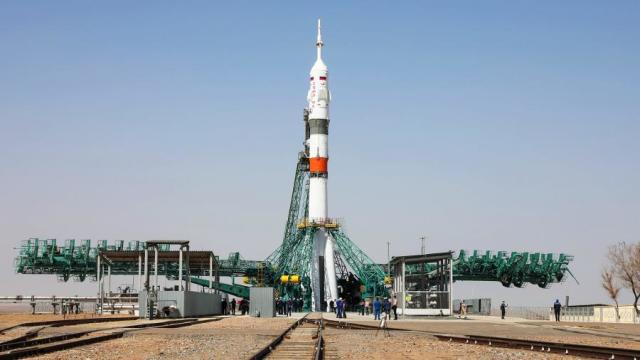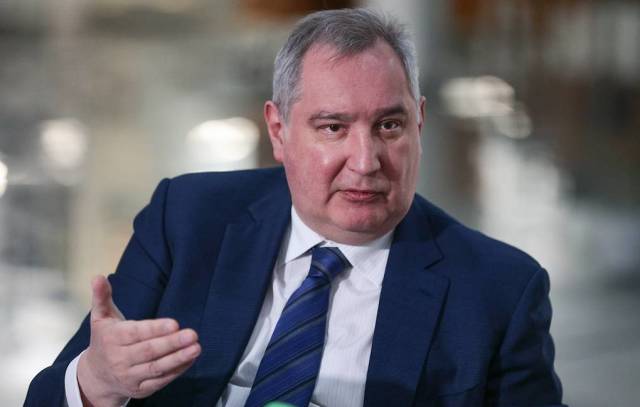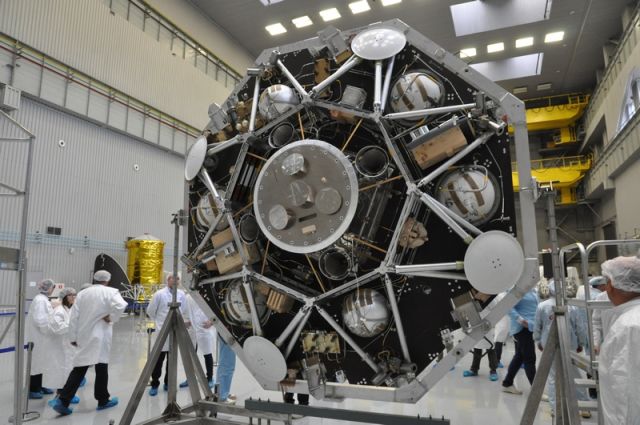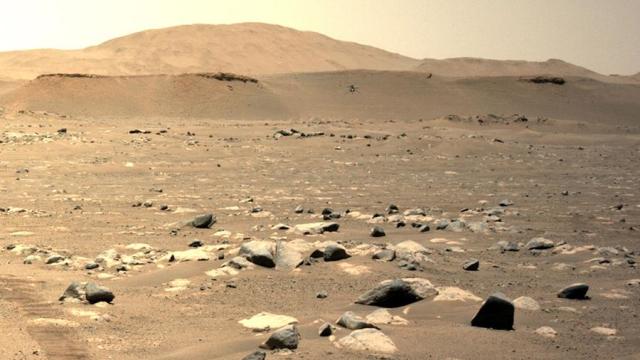Latest news on "Space"
Astronauts on the ISS have completed the installation of a new solar battery
American and French astronauts Shane Kimbrough and Tom Pesquet on Sunday, June 20, finished installing a new solar panel on the International Space Station. The broadcast was conducted on the NASA website.
The ISS orbit will be raised by almost 900 m
The ascent will be carried out using the engines of the Progress MS-16 transport cargo ship, Roscosmos reported
The height of the orbit of the International Space Station (ISS) will be adjusted by 890 m on June 24. This is stated in the message of Roscosmos, distributed on Monday.
Russia has developed a device that will be able to collect space objects and deliver them to Earth
Russian specialists have developed a spacecraft for collecting nanoscale objects located in the vicinity of Lagrange points.
South Korea says it will strengthen defense capabilities in space
Minister of National Defense Soe Uk promised to work closely with the private sector to modernize the space industry
The Republic of Korea will strengthen its defense capabilities in the space sector and create a system to combat threats in space. This was stated on Monday by the Minister of National Defense So Uk, according to the KBS TV channel.
Russia will help Turkey build a spaceport
Russia can help Turkey build a spaceport and create a rocket engine, RIA Novosti reports the statement of the head of the National Space Agency of Turkey, Serdar Hussein Yildirim.
The US called the most important achievements of China in space
The Chinese habitable multi-module space station resembles the Soviet-Russian "Mir" and the American Skylab in terms of the volume of internal living space, writes The Drive.
Roscosmos confirms launch of 36 Oneweb satellites on July 1 from Vostochny"
The launch of OneWeb satellites from the Vostochny cosmodrome will take place on July 1, the state corporation Roscosmos confirmed on Sunday.
The Russian Federation has developed a spacecraft for collecting extraterrestrial objects and delivering them to Earth
On it is a tape with solar panels and microcontainers
The spacecraft, which will be able to collect nanoscale objects of extraterrestrial origin in the vicinity of the libration points (the point at which the gravitational forces of the Sun and the planet are balanced) of the planets of the Solar System, was developed at the Ryazan State Radio Engineering University named after V. F. Utkin.
The body of astronauts is modified for the flight to Mars
Experts from Russia and the United States are considering the possibility of modifying people who will have a long-distance space flight, for example, to Mars. In particular, it is discussed whether the spleen should be removed by astronauts to reduce radiation damage. This is reported by RIA Novosti with reference to the director of the Institute of Medical and Biological Problems (IBMP) RAS Oleg Orlov.
The Chinese "settled" in the Earth's orbit
China is successfully realizing its space ambitions. On June 17, the People's Republic of China successfully sent three astronauts to its own space station "Tiangong" ("Heavenly Palace").
Terra Tech and PSB launch space monitoring of bank deposits
Terra Tech JSC, a subsidiary of the Russian Space Systems Holding (RKS, part of the State Corporation Roscosmos) and Promsvyazbank PJSC (PSB) have announced the launch of a joint project on integrated space monitoring and geospatial analysis of the bank's property assets.
China launches Yaogan-30-09 remote sensing satellite
This device will be used to study the conditions of exposure to an external electromagnetic field, indicated in the Chinese Aerospace Science and Technology Corporation
China successfully launched the Yaogan-30-09 remote sensing satellite into orbit on Friday. This was reported by the newspaper "Zhongguo Hantianbao".
Roscosmos has ruled out one of the reasons for the air leak on the ISS
Russian experts continue to find out the cause of the formation of cracks in the Zvezda module on the International Space Station (ISS), but the version of metal fatigue has been ruled out, said Sergey Krikalev, adviser to the General Director of Roscosmos, in an interview with RIA Novosti.
Patrushev visited the Progress RCC and the aircraft engine manufacturing plant in Samara
In particular, the Secretary of the Security Council of the Russian Federation inspected the final assembly shops of the NK-32 engines of the second series for the Tu-160 "White Swan" bombers and the deeply modernized Tu-160M
Secretary of the Security Council of the Russian Federation Nikolai Patrushev visited the Progress Rocket and Space Center (RCC) and the UEC-Kuznetsov in Samara.
Chinese cosmonauts entered the base module of the China Space Station
[b]The Office of the Manned Space Flight Program of the People's Republic of China reported that this is "the first time in history that the Chinese have entered their own space station".]
Three Chinese cosmonauts entered the base module of the Tianhe space station of the PRC on Thursday. This was announced on Thursday by the Office of the Manned Space Flight Program of the People's Republic of China.
Roscosmos is studying a proposal to send astronauts to the Chinese space station
Roscosmos is studying the proposal of the People's Republic of China to send Russian cosmonauts to the Chinese space station, specific negotiations have not yet begun, Sergei Krikalev, an adviser to the head of the state corporation, told Interfax.
Glavkosmos allowed a change in the design of the rocket for a separate fee for commercial launches
General Director of the company Dmitry Loskutov noted that the current contracts of Glavkosmos for commercial launches do not imply a change in the design of the Soyuz rocket
The current contracts of Glavkosmos (part of Roscosmos) for commercial launches do not imply a change in the design of the Soyuz rocket, but such a service can be available to the customer for a fee.
Ecomonitoring from space can be done by one of the groups laid down in the "Sphere"
The head of Roscosmos, Dmitry Rogozin, noted that to monitor CO2 emissions on the topic of so-called carbon units, it will be necessary to create special equipment for spectral analysis
Roscosmos is considering two options for monitoring CO2 emissions from space: creating a separate group or equipping spacecraft already included in the Sphere program with special equipment.
Repeated tests of parachute systems for the Exomars mission failed
The next attempt will take place in suitable weather, ESA reported
High-altitude tests of the parachutes of the Exomars-2022 lander, which consists of the Russian Kazachok landing platform and the European Rosalind Franklin rover, have not yet been successful, the next attempt will take place in suitable weather.
Russian scientist argued with Musk over the flight to Mars
Threats of a global catastrophe due to which the founder of the American company SpaceX, Elon Musk, wants to start colonizing Mars, are exaggerated. This was stated by the leading researcher of the NASA Jet Propulsion Laboratory Vyacheslav Turyshev.




